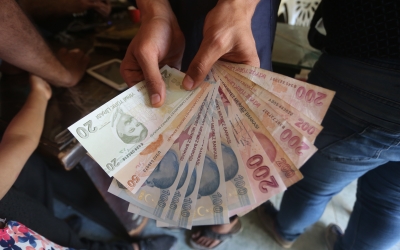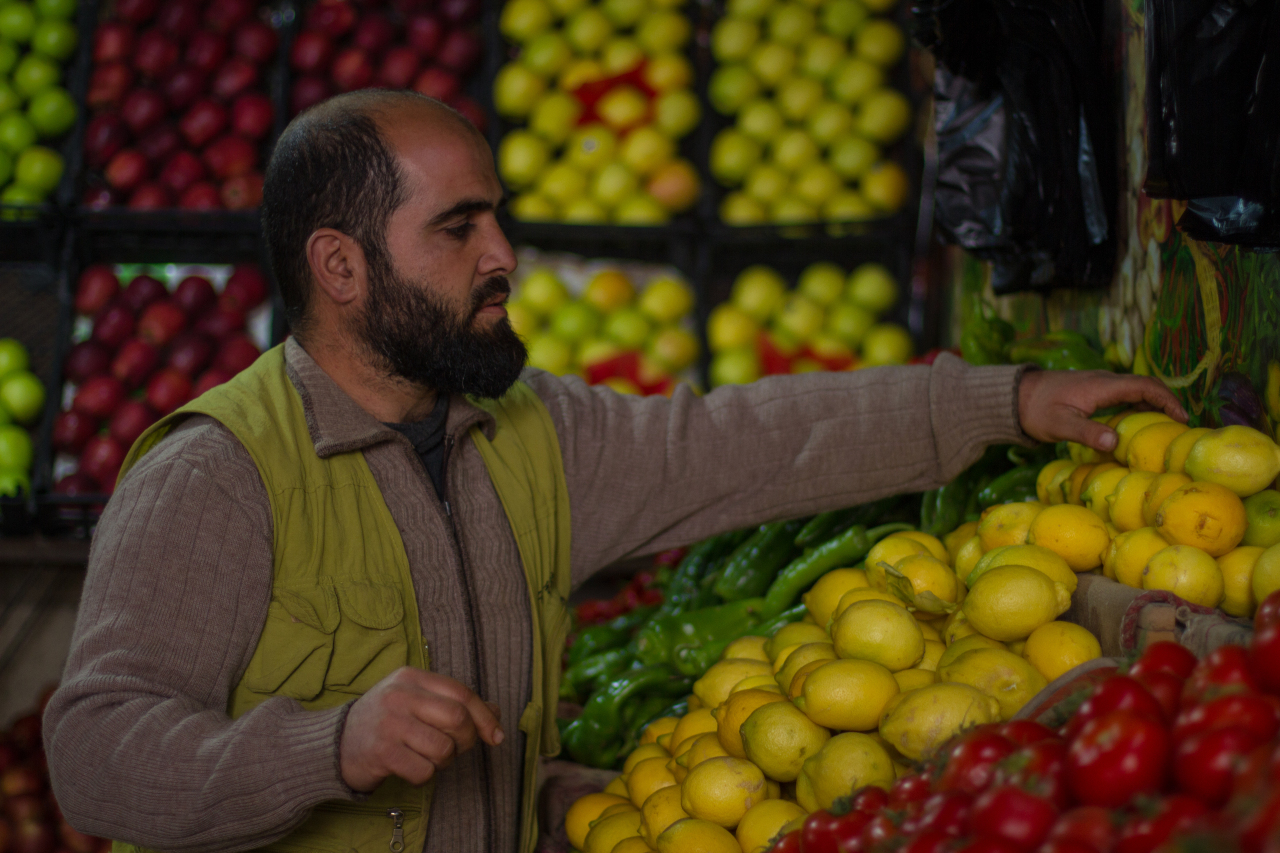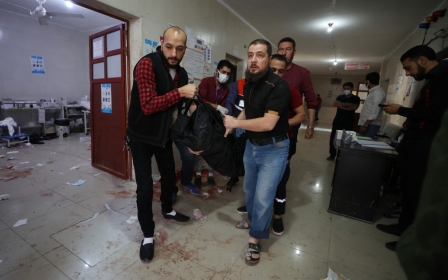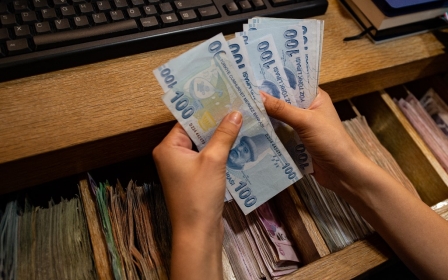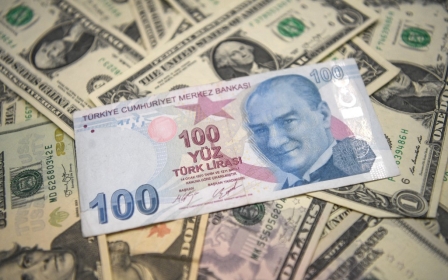Syria: People in Idlib rue adoption of plummeting Turkish lira
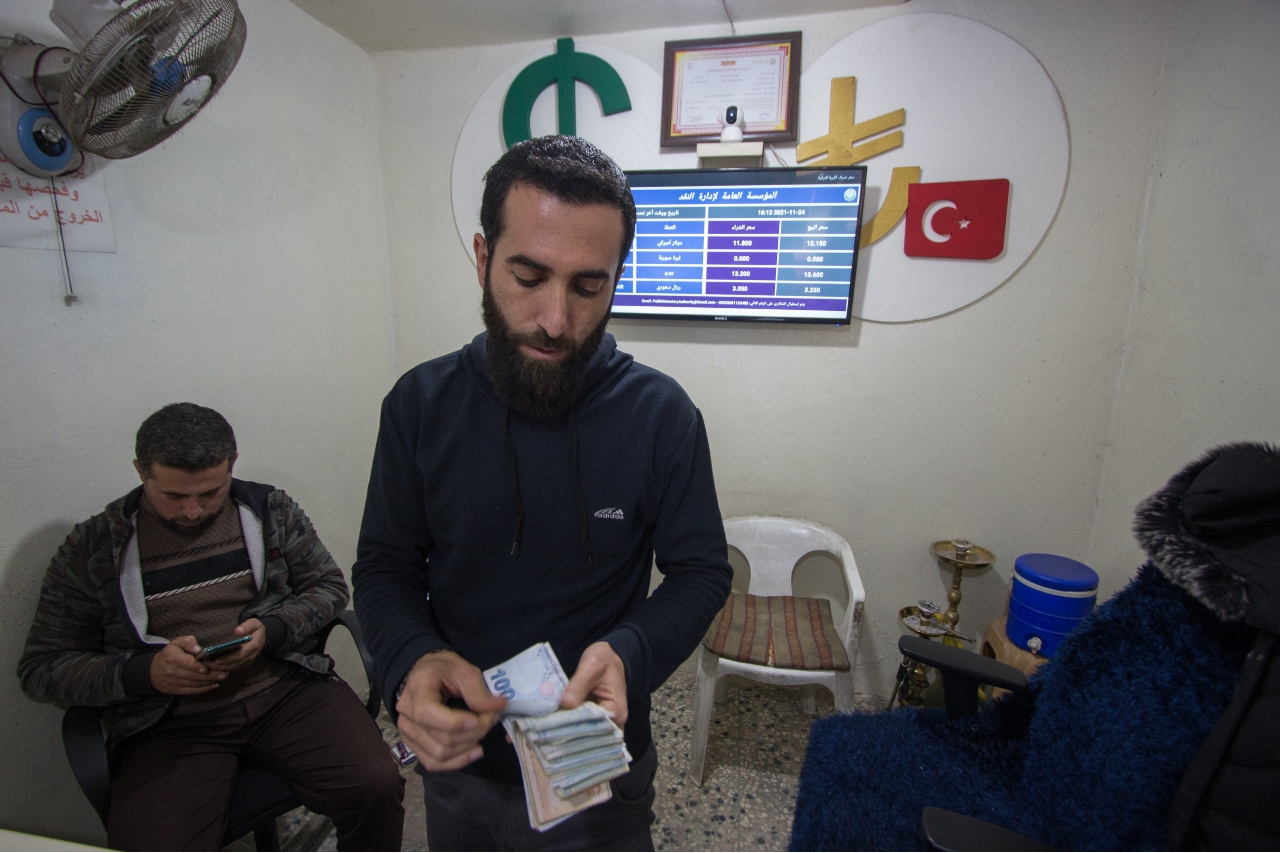
In June 2020, as the value of the Syrian pound continued to collapse, Turkey began to circulate its own currency, the lira, in rebel-held areas of northern Syria.
In the same month, the Syrian Salvation Government, a de facto alternative government affiliated with the militant group Hayat Tahrir al-Sham, ordered an end to the use of the Syrian pound in the city of Idlib and the surrounding countryside.
Overwhelming demand for the lira led to reports of people carrying around huge amounts of Syrian pounds, unable to find anyone who would buy them in exchange for the Turkish currency.
At the time, wages ranged from 10-30 lira per day, and the exchange rate was 6.8 lira to the US dollar.
However, since last year the lira has continued to weaken against the dollar, falling sharply over the past month - to more than 13 lira to the US currency at one point earlier this week.
The lira's extreme weakness has negatively impacted the economy in northern Syria, playing havoc with the stability of wages and raising the price of goods and services.
Alaa Al-Hamid, who owns a vegetable store in Binnish, in the east of Idlib, told Middle East Eye he had suffered a major slowdown in business following the fall in the lira. Hamid said that price hikes - coupled with extreme poverty in the region, estimated by the UN to stand at 97 percent - had meant that a large number of people were unable to purchase goods at all.
"I am here because I work in a shop that sells vegetables and fruits," Hamid said. "I was selling at a good price before the value of the Turkish lira went down, but now sales are very weak and we are suffering big losses. We go the next day to buy the same goods but find that its price has become more than the profit we make on our goods."
Pessimistic forecast for lira
Ahmed, who works as a clerk at an exchange bureau in the centre of Idlib province and did not wish to give his surname, told MEE that originally the exchange rate of the lira against the dollar had been a good price. However, following its sharp decline, he said people had faced great difficulties in dealing with the changes in prices and that business at his place of work had declined.
Ahmed said the situation was worrying for civilians in Idlib, making conditions even worse for the vulnerable, who already faced an economic crisis, Covid-19 and hostile air strikes. He expects the value of the lira to continue depreciating as long as Turkey's interest rate remained low. He added that when a country's currency deteriorates, its citizens will be affected, and that because Idlib now deals in the Turkish lira its people were suffering too.
'Great injustice'
Around half of Idlib province's estimated population of around four million are thought to be displaced.
One resident of Sarmada in the northern countryside of Idlib, who had been displaced from the south of the province, told MEE that ever since he had started his job, making construction blocks in a workshop, he had been paid 20 lira a day. The man, who requested anonymity over safety concerns, said that while the value of the lira had decreased, his salary was unchanged.
"Even 20 lira, when the exchange rate was good, was not enough for me, but better than now, because now I can't buy a canister of gas whose price is now 157 lira," he said.
"I need 10 lira a day to fill up my bike to go to work. I also need three loaves of bread a day, and the price of one is two and a half lira, meaning I only have two and a half lira left for my daily rent. As for chicken or any meat, we have forgotten them once and for all, because of poverty and high prices."
When asked about any solutions to the problem, the man, who decribed the current situation as "a great injustice", replied that fuel, bread and all basic items should be subsidised, and a minimum wage set for workers so people could provide for their basic needs.
Middle East Eye propose une couverture et une analyse indépendantes et incomparables du Moyen-Orient, de l’Afrique du Nord et d’autres régions du monde. Pour en savoir plus sur la reprise de ce contenu et les frais qui s’appliquent, veuillez remplir ce formulaire [en anglais]. Pour en savoir plus sur MEE, cliquez ici [en anglais].


